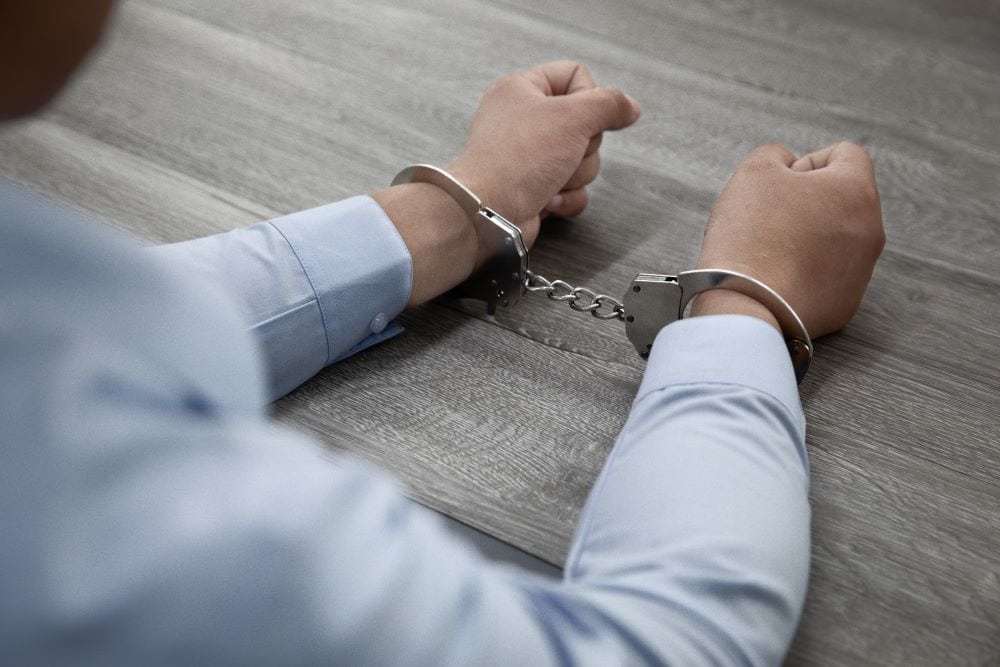
In situations where law enforcement officers use handcuffs, the expectation is that they do so to ensure safety and maintain control. However, what happens when the use of handcuffs goes beyond securing a suspect and results in injury? If you or someone you know has suffered injuries from being handcuffed, you might be wondering whether it’s possible to sue for damages.
Here, we explore the legal avenues available and what you need to know about pursuing a lawsuit for handcuff injuries.
The Basics of Handcuff Injuries
A. What Are Handcuff Injuries?
Handcuff injuries can range from minor discomfort to severe physical harm, including nerve damage, bruising, and even fractures. These injuries can occur during the application or removal of handcuffs, especially if they are applied too tightly or with excessive force.
B. Common Types of Handcuff Injuries
Common injuries associated with handcuff use include wrist injuries, nerve damage, and skin abrasions. In some cases, individuals may experience psychological trauma due to the manner in which handcuffs were applied or the circumstances surrounding their use.
C. The Impact of Handcuff Injuries on Physical and Mental Well-being
Handcuff injuries can have long-lasting effects on an individual’s physical and mental well-being. Physical injuries may require medical treatment and rehabilitation, while psychological trauma can result in emotional distress and anxiety. Understanding the full extent of these injuries is essential when pursuing legal action.
Steps to Take in Case of Handcuff Injury
A. Seeking Immediate Medical Attention
If you’ve suffered a handcuff injury, seek medical attention immediately. A healthcare professional can assess the extent of your injuries and provide necessary treatment. Documenting your injuries is crucial for building a strong legal case.
B. Documenting the Incident and Injuries
Take detailed notes of the incident, including the date, time, and location. If possible, obtain witness statements and photographs of your injuries. This information can serve as valuable evidence in your case.
C. Notifying Relevant Authorities and Seeking Legal Advice
Report the incident to the relevant authorities, such as the police department or internal affairs division. Additionally, seek legal advice from an experienced attorney specializing in personal injury cases. They can help you understand your legal rights and options for pursuing reimbursement. It’s also crucial to understand potential ‘legal fees’ when seeking legal advice for a handcuff injury case, as this can significantly impact the approach to pursuing legal action.
Who is at Fault
Determining fault and liability in cases of handcuff injuries can be complex and depends on various factors. Generally, arresting officers who apply handcuffs improperly or with excessive force may be held responsible for resulting injuries.
However, liability can also extend to the law enforcement agency if there is evidence of inadequate training, supervision, or a pattern of misconduct within the department.
Additionally, third parties, such as security personnel or private individuals, may be liable if they misuse handcuffs without justification. Establishing liability requires a thorough investigation and assessment of the circumstances surrounding the incident.
Who Can Be Liable for Handcuff Injuries?
A. Liability of Police Officers
Law enforcement officers can be held liable for handcuff injuries if they apply the handcuffs with excessive force or in a manner that deviates from standard procedures. Police Officers have a duty to use handcuffs in a manner that does not cause harm to the individual being detained. Additionally, the authorized use of force, including lethal force, is a critical aspect of law enforcement that must be exercised judiciously. Officers can be held personally liable for injuries caused by the use of excessive force or misconduct, highlighting the importance of adhering to legal and procedural standards.
B. Liability of Law Enforcement Agencies
Law enforcement agencies can also be held liable for handcuff injuries if they fail to train their police officer properly or if there is a pattern of misconduct within the department. Agencies have a duty to ensure that their police officer adhere to established protocols when using handcuffs.
C. Potential Liability of Third Parties
In some cases, third parties such as security personnel or private individuals may be liable for handcuff injuries if they use handcuffs improperly or without justification. These cases require a thorough investigation to determine liability.
Proving Negligence in Handcuff Injury Cases
A. Understanding the Concept of Negligence
Negligence is the failure to exercise reasonable care, resulting in harm to another person. To prove negligence in a handcuff injury case, you must show that the Police officer(s) breached their duty of care by applying the handcuffs improperly or with excessive force.
B. Gathering Evidence to Establish Negligence
Evidence such as medical records, witness statements, and expert testimony can help establish negligence. These pieces of evidence can demonstrate the extent of your injuries and the circumstances surrounding the incident.
C. Expert Testimony and Other Supporting Evidence
Expert testimony from medical professionals or use of force experts can strengthen your case by providing an unbiased opinion on the cause of your injuries and the level of force used by the Police officers.
Can I Sue For Handcuff Injury Caused
If you’ve sustained a handcuff injury due to negligence or misconduct, you may have grounds to file a lawsuit against the responsible parties. To initiate a lawsuit, it’s essential to seek legal guidance from an experienced attorney specializing in personal injury cases.
Your attorney will help you gather evidence, assess the viability of your claim, and navigate the legal process. This may involve filing a complaint with the appropriate court outlining your claims against the defendants.
Throughout the lawsuit, your attorney will advocate on your behalf to seek compensation for your injuries and hold the responsible parties accountable. Police brutality is a significant concern that leads many individuals to consider suing for handcuff injuries.
Pursuing Compensation and Justice
A. Types of Damages Available in Handcuff Injury Cases
Damages in a Police officer handcuffs injury case may include medical expenses, lost wages, pain and suffering, and punitive damages. Your attorney can help you assess the full extent of your damages and pursue fair reimbursement
B. Negotiating Settlements vs. Going to Trial
In some cases, it may be possible to negotiate a settlement with the defendant(s) outside of court. However, if a settlement cannot be reached, your case may proceed to trial, where a judge or jury will determine the outcome.
C. Protecting Your Rights Throughout the Legal Process
Throughout the legal process, it’s important to protect your rights and interests. Your attorney can advise you on how to interact with law enforcement and other parties involved in your case to avoid compromising your claim.
Seeking Justice: Why Do You Need an Attorney
A. Importance of Retaining an Experienced Attorney
Retaining an experienced attorney is crucial in navigating the legal process. An attorney can help you understand your rights, gather evidence, and build a strong case on your behalf.
B. Filing a Civil Lawsuit: What to Expect
Filing a civil lawsuit involves submitting a complaint to the court outlining your claims against the defendant(s). The defendant(s) will then have the opportunity to respond to the allegations and present their defense.
C. Strategies for Building a Strong Legal Case
Building a strong legal case requires careful planning and preparation. Your attorney can help you develop strategies to gather evidence, depose witnesses, and present your case in court effectively.

Seeking Justice With BLG
Moving forward after a handcuff injury involves seeking justice for the harm you’ve endured and holding law enforcement accountable for their actions. With the right legal representation, you can pursue a claim with confidence and seek the compensation you deserve.
If you or a loved one has suffered a handcuff injury due to the negligence or misconduct of law enforcement, it’s crucial to seek legal guidance. The Bourassa Law Group, LLC is here to help. Our experienced attorneys understand the complexities of personal injury cases involving law enforcement and can provide the support and advocacy you need.
Contact us today for a free consultation to discuss your case and explore your legal options. Let us help you seek justice and hold responsible parties accountable for your injuries.
Frequently Asked Questions: Can I Sue for Handcuff Injury?
Can I sue for a handcuff injury?
Yes, if you have sustained an injury due to the improper use of handcuffs, you may have grounds for a lawsuit against the responsible party.
Who can be held liable for a handcuff injury?
Liability can extend to the individual police officer who applied the handcuffs, the law enforcement agency they represent, and potentially other parties involved in the incident.
How do I prove negligence in a handcuff injury case?
To prove negligence, you must demonstrate that the police officer failed to exercise reasonable care when applying the handcuffs, leading to your injury. Evidence such as medical records, witness statements, and expert testimony can help establish negligence.
What compensation can I receive for a handcuff injury?
Compensation for a handcuff injury may include medical expenses, lost wages, pain and suffering, and other damages related to your injury. The amount of compensation you can receive depends on the specifics of your case and the extent of your injuries.




